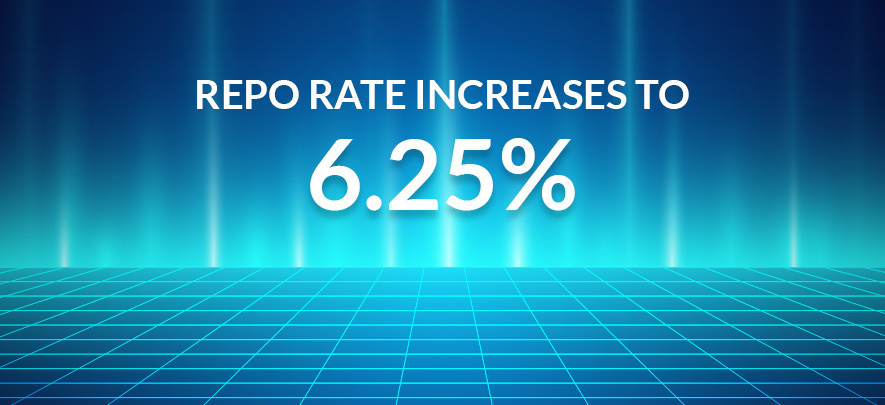Repo Rate increased to 6.25%

Economy
344 week ago — 2 min read
India’s Monetary Policy Committee (MPC) voted unanimously to increase the Repo Rate by 25 basis points to 6.25%. This is the first time in four years that the rate has been increased. Concerns about inflation are the main reason for the hike.
The MPC stated that their policy stance was neutral giving them the flexibility of moving in the direction they seem necessary in the near future. Officially, the MPC declared, “The decision of the MPC is consistent with the neutral stance of monetary policy in consonance with the objective of achieving the medium-term target for consumer price index (CPI) inflation of 4 percent within a band of +/- 2 percent, while supporting growth.”
Higher oil prices, a weakening Rupee, geopolitical instability, in addition to inflation are considered the main reasons behind the increase. Oil prices have risen nearly 12% with the Rupee depreciating by nearly 3% since the last policy review by the MPC. Retail inflation is expected to be 4.8-4.9% in the first half of the year plateauing to 4.7% in the second.
The Reverse Repo rate has also been hiked to 6%.
‘"GDP growth is projected in the range of 7.5- 7.6 percent in H1 and 7.3- 7.4 percent in H2 , with risks evenly balanced," RBI said.
The RBI concluded in its press release titled ‘Second Bi-monthly Monetary Policy Statement, 2018-19 Resolution of the Monetary Policy Committee (MPC)’ that: “Geo-political risks, global financial market volatility and the threat of trade protectionism pose headwinds to the domestic recovery. It is important that public finances do not crowd out private sector investment activity at this crucial juncture. Adherence to budgetary targets by the Centre and the States – which appears to be the case thus far – will also ease upside risks to the inflation outlook considerably.”
The next meeting of the Monetary Policy Committee will be on July 31 and August 1, 2018.
Posted by
GlobalLinker StaffWe are a team of experienced industry professionals committed to sharing our knowledge and skills with small & medium enterprises.
Most read this week
Trending
Ecommerce 3 days ago














Comments
Please login or Register to join the discussion